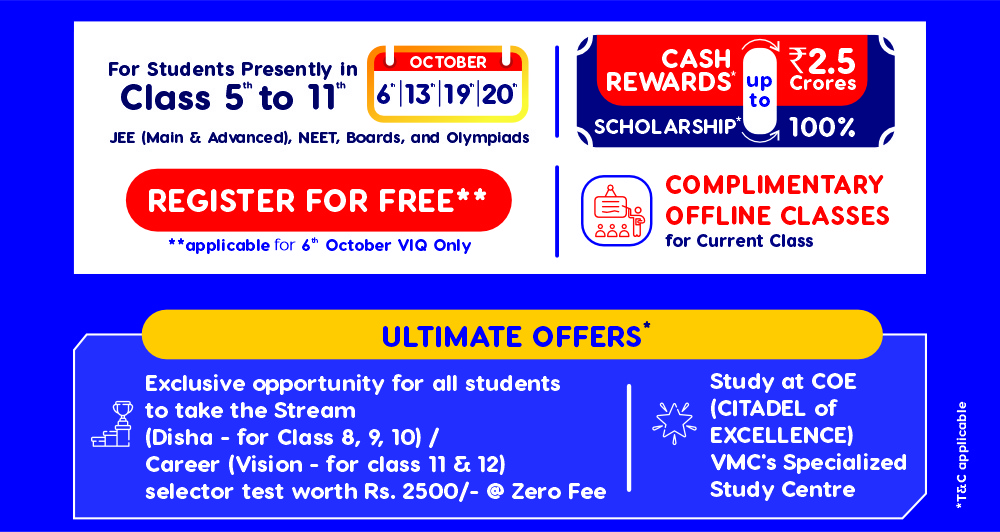Active Learning and Classroom Participation: Keys to NEET Success
 Posted On
Posted On
181 total views, 1 views today
As the National Eligibility cum Entrance Test (NEET) continues to be one of the most challenging exams for aspiring medical students in India, finding effective study strategies is crucial. While self-study plays a significant role in NEET preparation, the importance of active learning and participation in classroom settings cannot be overstated.
Understanding Active Learning
Active learning is an instructional approach that encourages students to actively engage with the material, rather than passively receiving information. It involves techniques that promote critical thinking, problem-solving, and a deeper understanding of the subject matter. In the context of NEET preparation, active learning can significantly improve your grasp of complex concepts and enhance retention.
Key strategies for active learning include:
- Interactive Discussions: Engaging in discussions with peers and instructors allows you to clarify doubts, explore different perspectives, and consolidate your understanding of topics. It also helps in developing critical thinking skills, which are essential for solving NEET questions.
- Problem-Solving Sessions: Applying theoretical knowledge to solve practice problems and case studies helps in reinforcing concepts. Regularly working on NEET-style questions and problems improves your analytical abilities and prepares you for the exam’s challenging questions.
- Concept Mapping: Creating visual representations of information, such as mind maps or flowcharts, helps in organizing and linking concepts. This technique aids in better retention and recall of complex topics.
- Active Note-Taking: Instead of passively transcribing information, engage in active note-taking by summarizing key points, highlighting important concepts, and creating questions based on the material. This approach promotes deeper processing and understanding.
The Role of Classroom Participation
Learning takes place in a classroom where participation is required. Actively participating in class can lead to a more immersive learning experience and offer several advantages for NEET preparation:
- Enhanced Understanding: When you actively participate in class discussions, ask questions, and engage with the material, you gain a clearer and more nuanced understanding of the subjects. This deep comprehension is crucial for tackling the diverse and complex questions in NEET.
- Immediate Feedback: Classroom interactions provide opportunities for immediate feedback from instructors. This feedback can help you identify and rectify misconceptions, address gaps in knowledge, and refine your understanding of challenging concepts.
- Motivation and Accountability: Active participation in class fosters a sense of responsibility and accountability. When you contribute to discussions and collaborate with peers, you are more likely to stay motivated and committed to your NEET preparation.
- Peer Learning: Engaging with classmates allows you to learn from their insights, strategies, and approaches. Collaborative learning can offer new perspectives and methods that may enhance your own study techniques.
- Confidence Building: Regular classroom participation helps build confidence in your knowledge and abilities. As you articulate your understanding and engage in discussions, you become more comfortable with the material, which can positively impact your performance in the exam.
Implementing Active Learning and Classroom Participation
To effectively incorporate active learning and classroom participation into your NEET preparation, consider the following tips:
- Set Clear Goals: Define specific learning objectives for each class or study session. Focus on understanding key concepts, solving practice problems, and addressing areas of difficulty.
- Be Proactive: Take the initiative to participate in discussions, ask questions, and seek help when needed. Seek out opportunities proactively rather than passively waiting for them to present themselves.
- Form Study Groups: Collaborate with peers to discuss topics, solve problems, and review material together. Study groups provide a platform for active engagement and mutual support.
- Utilize Resources: Make use of available resources, such as online forums, educational apps, and interactive study materials, to complement your classroom learning and enhance your preparation.
- Reflect and Review: Regularly reflect on your learning experiences and review the material to reinforce your understanding. Identify your areas of weakness and focus your efforts on resolving them.
- Stay Organized: Keep your study materials, notes, and resources well-organized to facilitate active learning. Use tools such as planners or digital apps to manage your study schedule and track your progress.
Final Thoughts
Active learning and classroom participation are powerful tools that can significantly boost your NEET preparation. By engaging actively with the material, participating in discussions, and collaborating with peers, you can deepen your understanding, build confidence, and enhance your problem-solving skills. Remember, NEET is not just a test of knowledge but also of your ability to apply that knowledge effectively. Accept these tips to make the most of your study and raise your chances of passing this difficult test. As you embark on your NEET preparation journey, keep in mind that the road to success is paved with active engagement, persistent effort, and a proactive approach to learning. With dedication and the right strategies, you can achieve your goal of becoming a medical professional and making a meaningful impact in the field of healthcare.




